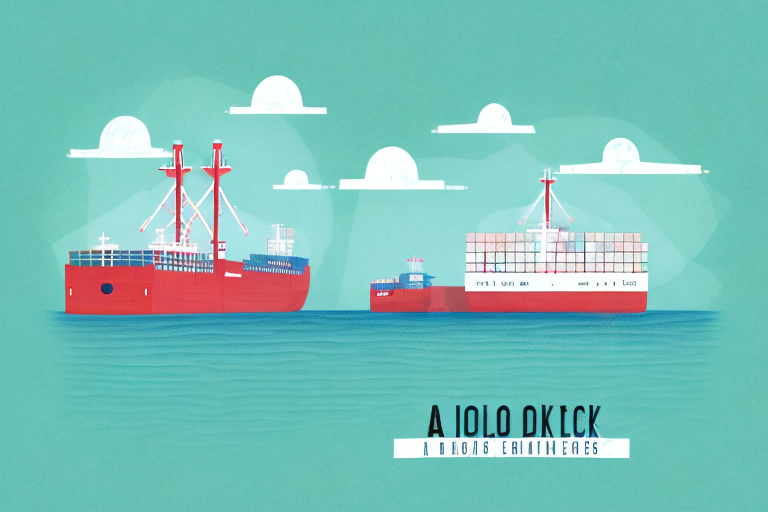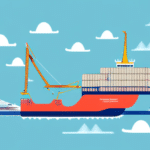Understanding FOB Shipping Terms
When it comes to global commerce, shipping is a crucial aspect that requires a comprehensive understanding. Among the many shipping terms used internationally, FOB Shipping Terms are of particular importance. In this section, we will explore the fundamentals of FOB shipping terms, their origins, and how they operate within international trade.
What Does FOB Stand For in Shipping?
FOB is an acronym for Free on Board or Freight on Board. This term is used to determine the point at which responsibility and ownership of goods transfer from the seller to the buyer. Specifically, it clarifies who is responsible for the shipment's transportation and the payment of freight charges, as well as specifying the delivery site and the rights and obligations of both parties.
When using FOB shipping terms, the responsibility for the goods transfers from the seller to the buyer once the shipment is loaded onto the carrier. This implies that any damages or losses that occur during transit become the buyer's responsibility. Clear understanding of FOB terms is essential to avoid any misunderstandings or disputes.
The Origin of FOB Shipping Terms
The origin of FOB shipping terms can be traced back to the 17th and 18th centuries. Originally used by the Buffalo and Erie Railroad in the USA as a means of payment for cargo loaded onto their railway wagons, the term was later adopted by the maritime industry for similar purposes.
Today, FOB shipping terms are widely utilized in international trade to denote the point at which the seller's responsibility for the goods ends and the buyer's begins. This point is typically when the goods are loaded onto the shipping vessel or transport vehicle. Understanding FOB terms is crucial for both buyers and sellers as it impacts the cost, risk, timing of payment, and delivery of goods.
Types of FOB Shipping Terms
FOB shipping terms come in various forms, each specifying different points of responsibility and cost allocation between the buyer and seller. Understanding these types is essential for making informed shipping decisions.
FOB Shipping Point
Under FOB Shipping Point, the buyer assumes responsibility for the goods as soon as they leave the seller's premises. This means the buyer is responsible for transportation costs, insurance, and any potential damages once the goods are shipped.
FOB Destination
With FOB Destination, the seller remains responsible for the goods until they reach the buyer's location. The seller covers all transportation costs and bears the risk of loss or damage during transit.
FOB MIL
FOB MIL is used in U.S. Government contracts, specifying that the seller's responsibility ends once the goods are loaded onto a government carrier vessel.
FOB Specific Point
FOB Specific Point requires the seller to deliver goods to a mutually agreed-upon location, ensuring clarity in the point of transfer of responsibility.
Advantages and Disadvantages of FOB Shipping Terms
FOB shipping terms offer several benefits and drawbacks that both buyers and sellers must consider when negotiating contracts.
Advantages of Using FOB Shipping Terms
- Cost-Effective: Allows both parties to share transportation costs efficiently.
- Transparency: Provides clear understanding of all associated costs, including insurance, fees, and customs clearance charges.
- Control: Buyers gain more control over the shipping process, enabling them to choose preferred shipping methods and carriers.
- Risk Management: Clearly defines the point of transfer of responsibility, reducing the likelihood of disputes.
Disadvantages of Using FOB Shipping Terms
- Risk Allocation: No fixed rule for allocating risks, which can lead to financial losses if disagreements arise.
- Determining Transfer Point: Difficulty in precisely determining when responsibility transfers, potentially causing disputes over damage or loss.
- Not Suitable for All Goods: May not be ideal for perishable or specially handled goods that require specific shipping terms.
Common Misconceptions about FOB Shipping Terms
One common misconception is that FOB shipping terms always require the buyer to arrange and pay for transportation charges. In reality, FOB terms can vary significantly based on the specific agreement between the buyer and seller.
Choosing and Negotiating FOB Shipping Terms
Selecting the appropriate FOB shipping term is vital for ensuring a smooth transaction and mitigating risks. Several factors should be considered during this process.
How to Choose the Right FOB Shipping Term for Your Business
Choosing the right FOB shipping term depends on factors such as the delivery location, the buyer's level of experience with international shipping, and the nature of the goods being shipped. Consulting with a shipping expert and reviewing current market standards can aid in making an informed decision.
Negotiating FOB Shipping Terms with Suppliers and Buyers
Effective negotiation involves clearly defining the levels of responsibility and associated costs for both parties. It's crucial to include all necessary details in the contract to prevent misunderstandings and ensure that both parties are aware of their obligations.
Legal and Risk Considerations
FOB shipping terms carry legal implications and potential risks that must be understood to safeguard against financial losses and legal disputes.
Understanding the Legal Implications of FOB Shipping Terms
FOB shipping terms are legally binding and dictate the obligations of both the buyer and seller. It is essential to have a thorough understanding of these legal responsibilities to ensure compliance and protect against potential legal issues.
Potential Risks and Liabilities Associated with FOB Shipping Terms
Adopting FOB shipping terms can expose parties to various risks, including shipment delays, damage, or loss. Additionally, liabilities arise when there is a deviation from the agreed terms, leading to financial losses. It is imperative to carefully evaluate all risks and liabilities before agreeing to FOB shipping terms.
Conclusion
FOB shipping terms play a pivotal role in international commerce by delineating the responsibilities and costs associated with shipping goods. Understanding the different types of FOB terms, their advantages and disadvantages, and the legal implications is crucial for both buyers and sellers. By carefully choosing and negotiating the appropriate FOB shipping terms, businesses can mitigate risks, optimize costs, and ensure successful transactions.
For more detailed information on international shipping terms and best practices, refer to resources such as the International Chamber of Commerce.




















